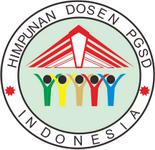THE USE OF EDUCAPLAY IN PRIMARY SCHOOL LEARNING
DOI:
https://doi.org/10.31949/jcp.v11i3.13451Abstract
Technological developments in education have encouraged the use of digital media in learning, including in elementary schools. One of the innovations used is Educaplay, a gamification-based platform designed to increase student engagement in the learning process. However, the effectiveness of Educaplay in improving students' conceptual understanding and critical thinking skills still needs to be studied further. This study aims to analyze the implementation of Educaplay in primary school learning and its impact on students' conceptual understanding and critical thinking skills. This study used a qualitative approach with an exploratory descriptive design. Data were collected through interviews with teachers and students, classroom observations, and documentation studies. Data analysis was carried out using data reduction techniques, data presentation, and conclusion drawing based on the Miles and Huberman method. The results showed that the use of Educaplay was able to increase students' involvement and motivation in learning. Analysis of pretests and posttests revealed a significant increase in conceptual understanding in students who used Educaplay compared to conventional methods. In addition, the platform supports the implementation of instructional differentiation and assists teachers in monitoring student progress in real-time. However, the implementation of Educaplay faces challenges, such as limited infrastructure and teachers' lack of digital literacy. Therefore, training for educators and improving access to technology are needed to maximize the effectiveness of digital-based learning in primary schools.
Keywords:
educaplay, gamification., digital learning, conceptual understandingDownloads
References
Bandura, A. (2001). Social cognitive theory: An agentic perspective. Annual Review of Psychology, 52(1), 1-26.
Bergmann, J., & Sams, A. (2012). Flip your classroom: Reach every student in every class every day. International Society for Technology in Education.
Clark, R. C., & Mayer, R. E. (2016). E-learning and the science of instruction: Proven guidelines for consumers and designers of multimedia learning (4th ed.). Wiley.
Creswell, J. W. (2018). Research design: Qualitative, quantitative, and mixed methods approaches (5th ed.). SAGE Publications.
Creswell, J. W., & Creswell, J. D. (2017). Research design: Qualitative, quantitative, and mixed methods approaches (5th ed.). SAGE Publications.
Deci, E. L., & Ryan, R. M. (2000). The "what" and "why" of goal pursuits: Human needs and the self-determination of behavior. Psychological Inquiry, 11(4), 227-268.
Fiorella, L., & Mayer, R. E. (2015). Learning as a generative activity. Cambridge University Press.
Fleming, N., & Baume, D. (2006). Learning styles again: VARKing up the right tree! Educational Developments, 7(4), 4.
Fraenkel, J. R., & Wallen, N. E. (2019). How to design and evaluate research in education (10th ed.). McGraw-Hill.
Hattie, J., & Yates, G. (2013). Visible learning and the science of how we learn. Routledge.
Jonassen, D. H. (2010). Learning to solve problems: A handbook for designing problem-solving learning environments. Routledge.
Koehler, M., & Mishra, P. (2009). What is technological pedagogical content knowledge (TPACK)? Contemporary Issues in Technology and Teacher Education, 9(1), 60-70.
Mayer, R. E. (2024). Multimedia learning (4th ed.). Cambridge University Press.
Merriam, S. B., & Tisdell, E. J. (2016). Qualitative research: A guide to design and implementation (4th ed.). Jossey-Bass.
Miles, M. B., & Huberman, A. M. (1994). Qualitative data analysis: An expanded sourcebook (2nd ed.). SAGE Publications.
Miles, M. B., Huberman, A. M., & Saldaña, J. (2014). Qualitative data analysis: A methods sourcebook (3rd ed.). SAGE Publications.
Patton, M. Q. (2015). Qualitative research & evaluation methods: Integrating theory and practice (4th ed.). SAGE Publications.
Piaget, J. (2013). The construction of reality in the child. Routledge.
Rosa, E., Destian, R., Agustian, A., & Wahyudin, W. (2024). Inovasi model dan strategi pembelajaran dalam implementasi kurikulum merdeka: Inovasi model dan strategi pembelajaran dalam implementasi kurikulum merdeka. Journal of Education Research, 5(3), 2608-2617.
Sholihah, M. A., & Sofiyana, M. S. (2021). Analisis kesadaran metakognitif bagi calon guru di Universitas Islam Balitar. Analisis Kesadaran Metakognitif Bagi Calon Guru di Universitas Islam Balitar, 12(3), 201-2016.
Sweller, J. (2011). Cognitive load theory and E-learning. In Artificial Intelligence in Education: 15th International Conference, AIED 2011, Auckland, New Zealand, June 28–July 2011 (pp. 5-6). Springer Berlin Heidelberg.
Ubaidah, N. (2022). Evaluasi penggunaan teknologi digital dalam pembelajaran berbasis interaktif. Jurnal Inovasi Pendidikan, 9(2), 112-124.
Utami, R. D., & Wibawa, S. (2023). Pemanfaatan aplikasi Educaplay pada pembelajaran pendidikan pancasila materi aturan di rumah dan sekolah. Pendas: Jurnal Ilmiah Pendidikan Dasar, 8(3), 5808-5818.
Vygotsky, L. S. (1978). Mind in society: The development of higher psychological processes (Vol. 86). Harvard University Press.
Wang, A. I., & Tahir, R. (2020). The effect of using Kahoot! for learning–A literature review. Computers & Education, 149, 103818.
Published
How to Cite
Issue
Section
License
Copyright (c) 2025 Nunung Nurhayati, Karlimah Karlimah, Ghullam Hamdu

This work is licensed under a Creative Commons Attribution-ShareAlike 4.0 International License.
Authors who publish with this journal agree to the following terms:
- Authors retain copyright and grant the journal right of first publication with the work simultaneously licensed under a Creative Commons Attribution License that allows others to share the work with an acknowledgment of the work's authorship and initial publication in this journal.
- Authors are able to enter into separate, additional contractual arrangements for the non-exclusive distribution of the journal's published version of the work (e.g., post it to an institutional repository or publish it in a book), with an acknowledgment of its initial publication in this journal.
- Authors are permitted and encouraged to post their work online (e.g., in institutional repositories or on their website) prior to and during the submission process, as it can lead to productive exchanges, as well as earlier and greater citation of published work (See The Effect of Open Access).


